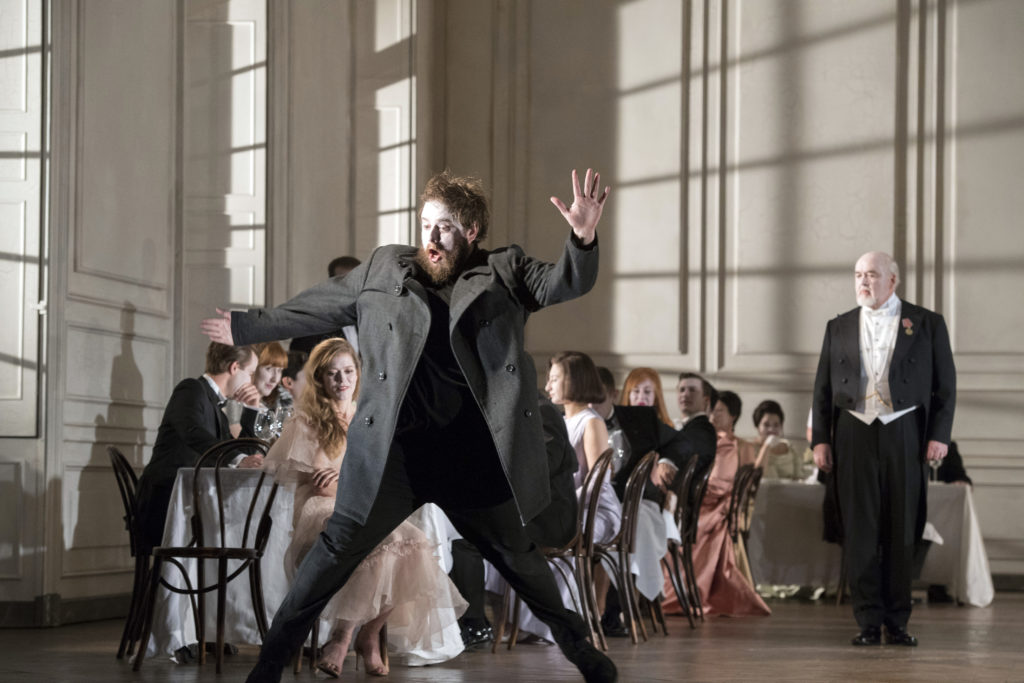THE HANGOVER REPORT – Brett Dean’s faithful, visceral operatic adaptation of HAMLET sonically unleashes the existential depths of the Bard’s text
- By drediman
- May 25, 2022
- No Comments

Last week, I was able to catch up with the New York premiere of composer Brett Dean and librettist Matthew Jocelyn’s visceral operatic adaptation of Hamlet at the Metropolitan Opera. The production – which is not to be confused with composer Ambroise Thomas and librettists Michel Carré and Jules Barbier’s 1868 grand opera adaptation of the popular tragedy (which I find departs from the essence of Shakespeare’s play) – was originally staged by director Neil Armfield in 2017 at the Glyndebourne Festival, where it enjoyed critical acclaim. Thankfully, New York audiences now have the opportunity to witness firsthand Mr. Armfield’s staging of this important work, in my opinion one of the most beguiling contemporary operas of the century thus far.
Indeed, the largely Australian creative team has put together an expressive and harrowing piece of music theater. Mr. Armfield loosely sets the opera in a world that vaguely suggests both the 18th and 20th centuries, lending a timeless, universal quality to the psychologically astute production. Mr. Jocelyn’s largely faithful libretto intelligently truncates the underlying play, collapsing it without unnecessarily supplementing it with new material, eliminating key details, or altering its original spirit. In fact, almost all of the words in the libretto are culled directly from Shakespeare’s play. Mr. Dean’s remarkable, dissonant score sonically unleashes the existential depths of the Bard’s text, inviting listeners to step directly into the notoriously restless and unsettled mind of the title character. The music-making (kudos to conductor Nicolas Carter for his precise reading of the score) is packed with genuinely ingenious touches that serve to articulate the trenchant nuances of Shakespeare’s drama – for example, the unnervingly immersive percussion section (some of which are positioned in the boxes of the auditorium), the electronic instruments that create unusual sound effects, and the disorientingly muffled chorus in the pit all contribute to a dynamic and involving sonic experience unlike any other opera at the Met I’ve encountered.
Many of the cast members from the Glyndebourne Festival production are reprising their performances at the Met, most notably tenor Allan Clayton – in a vocally virtuosic, dramatically caustic performance – as the troubled Danish Prince. The exceptional and accomplished cast also includes soprano Brenda Rae in a fearless turn as Ophelia, as well as veteran baritone Rod Gilfry as Claudius and the celebrated bass-baritone John Relyea as the ghost of Hamlet’s father. At the performance I attended, however, a number of performers were indisposed – I’m assuming due to Covid – but the Met’s deep bench saved the day, giving the opportunity for a number of singers to valiantly and seamlessly step in (at the performance I attended, Eve Gigliotti played Gertrude, David Adam Moore played Horatio, Daniel Moody played Rosencrantz, and Eric Jurenas played Guildenstern – all admirably).
HIGHLY RECOMMENDED
HAMLET
Opera
The Metropolitan Opera
3 hours, 15 minutes (with one intermission)
Through June 9

 Copyright © 2024
Copyright © 2024
Leave a Reply